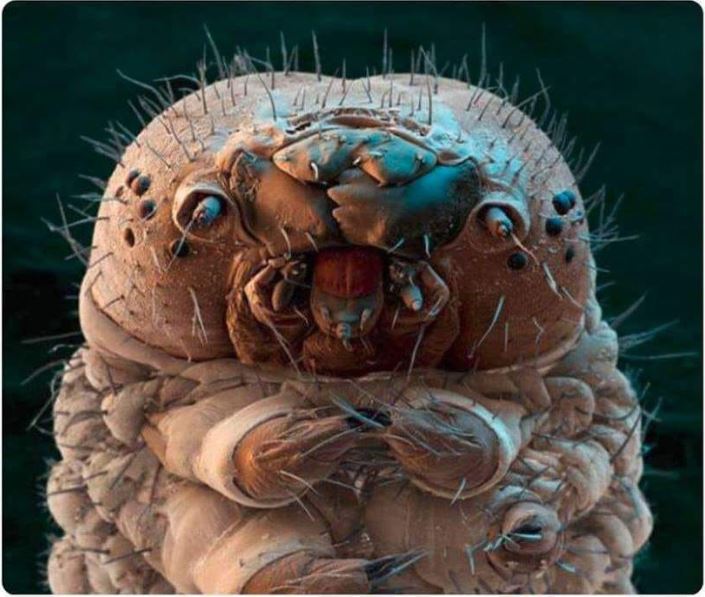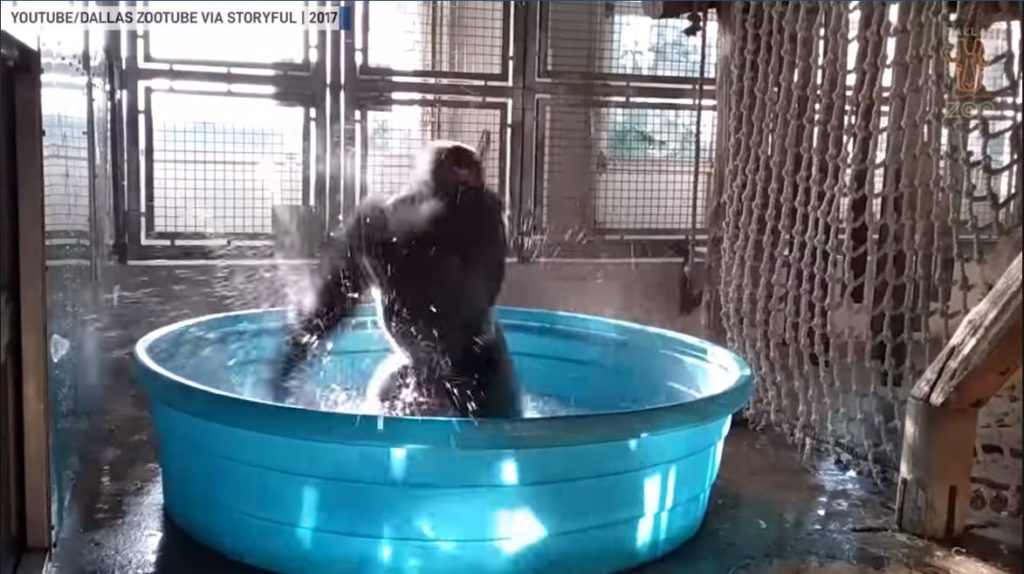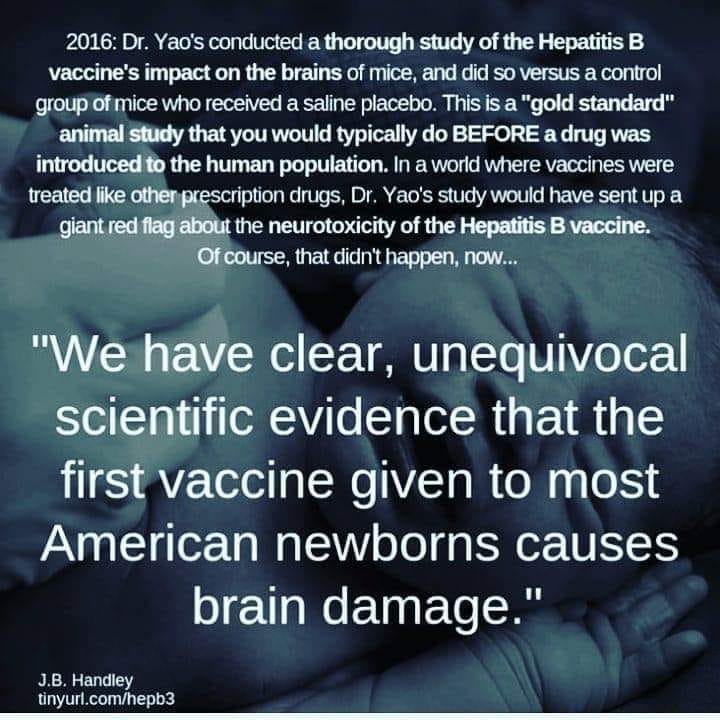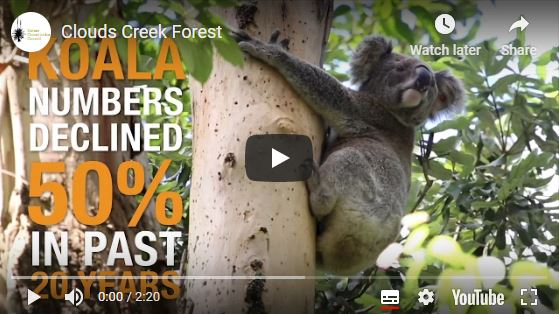
I’m no longer feeling lonely.
Now I’m feeling TERRIFIED!
Not really.
How could I feel terrified of someone whose hair looks like mine?
Although his eyes ARE a little creepy!

Tom's Blog on Life and Livingness

I’m no longer feeling lonely.
Now I’m feeling TERRIFIED!
Not really.
How could I feel terrified of someone whose hair looks like mine?
Although his eyes ARE a little creepy!

This is beautifully aesthetic! Treat yourself to 4 minutes of pure excellence!

You’ve heard that advice to dance like nobody is watching?

Some more intersting data on how probiotics affect different elements of our health and disposition.
Our mental acuity and ability to trust that inner voice is intimately connected to our physiological condition and the physical health of the gut. Increasing research into the psycho-neuro-gut connection and new findings on this interaction show just how interconnected our mental health, brain health, gut health and immune systems are. It also explores the impact of all this on stress and resilience.
https://www.probioticsbydre.com/what-you-need-to-know-about-your-brain-and-probiotics.html

This unbiased, non-politically affiliated scientist–Dr. Eastbrook–is ON THE MONEY! He is speaking the language of genuine science, rather than dogmatic pseudoscience, which I find damned refreshing.
This is one of the more cogently and authoritatively expressed treatments of the subject I’ve encountered, to date!! A VERY CREDIBLE argument, unlike GREAT MASSES of propaganda deluging us today.
The entire alarmist, sham AGW scenario suffers from serious problems, including how it is based on problematic models (and “fudge-factors”), how it stinks of dogma and “True Believer” mentality, and how it seems to serve a political agenda.

If you want to read more in it go to https://jbhandleyblog.com/home/2018/7/2/hepbthree

In this video, ecologist Mark Graham walks through Clouds Creek, an old-growth forest that houses towering, old giant trees and habitat to many threatened native species.
Under the NSW Government’s proposed remapping and rezoning plan, this forest will be opened up to logging. Watch the video and learn how this disastrous plan will affect the fragile ecosystems in this ancient forest.
Thanks to Max Phillips for filming and editing the video.
https://www.nature.org.au/our-campaigns/ending-deforestation/save-clouds-creek-forest/

Love this. The only bit I would alter is taking the headphones on the walk.
“Push yourself to get up before the rest of the world – start with 7am, then 6am, then 5:30am. Go to the nearest hill with a big coat, your favorite blanket and a scarf and watch the sun rise.
Push yourself to fall asleep earlier – start with 11pm, then 10pm, then 9pm. wake up in the morning feeling re-energized and comfortable. Lie in your garden, feel the sunshine on your skin.
Get into the habit of cooking yourself a beautiful breakfast. Fry tomatoes and mushrooms in real butter and garlic, fry an egg, slice up a fresh avocado and squirt way too much lemon on it. Sit and eat it and do nothing else.
Stretch. Start by reaching for the sky as hard as you can, then trying to touch your toes. roll your head. Stretch your fingers. Stretch everything.
Buy a water bottle. Push yourself to drink the whole thing in a day, then try drinking it twice.
Buy a beautiful diary and a beautiful black pen. Write down everything you do, including dinner dates, appointments, assignments, coffees, what you need to do that day. No detail is too small.
Strip your bed of your sheets and empty your underwear into the washing machine. wash, then hang them in the sunshine with care. Make your bed in full.
Dig your fingers into the earth, plant a seed. See your success as it grows everyday.
Organize your room. Fold all your clothes (and bag what you don’t want), clean your mirror, your laptop, vacuum the floor. Light your favorite candle.
Breath. Practice your deep breathing. Ground yourself.
Have a luxurious shower with your favorite music playing. Wash your hair, scrub your body, brush your teeth. Lather your whole body in moisturizer, get familiar with the part between your toes, your inner thighs, the back of your neck. Wash the day’s stress away.
Push yourself to go for a walk. Take your headphones, go to the beach and walk. Smile at strangers walking the other way and be surprised how many smile back. Bring your dog and observe the dog’s behavior. Realize you can learn from your dog.
Message old friends with personal jokes. Reminisce. Suggest a catch up soon, even if you don’t follow through. Push yourself to follow through.
Think long and hard about what interests you. crime? sex? boarding school? long-forgotten romance etiquette? Find a book about it and read it. There is a book about literally everything.
Become the person you would ideally fall in love with. Let cars merge into your lane when driving. Pay double for parking tickets and leave a second one in the machine. Stick your tongue out at babies. Help an animal. Compliment people on their cute clothes. Challenge yourself to not ridicule anyone for a whole day-then two, then a week. Walk with a straight posture. Look people in the eye. Ask people about their story. Talk to acquaintances so they become friends.
Lie in the sunshine. Daydream about the life you would lead if failure wasn’t a thing. Open your eyes.
Take small steps to make it happen for you…”

A mother has shared her shock after her son claimed to remember experiencing the miscarriage she had before he was born.
https://www.mirror.co.uk/lifestyle/family/mums-shock-son-4-says-13937636

A Perth doctor is warning of the dangers of wearing high-vis shirts in direct sunlight after what she believes is the world’s first case of burns from retro-reflective tape.